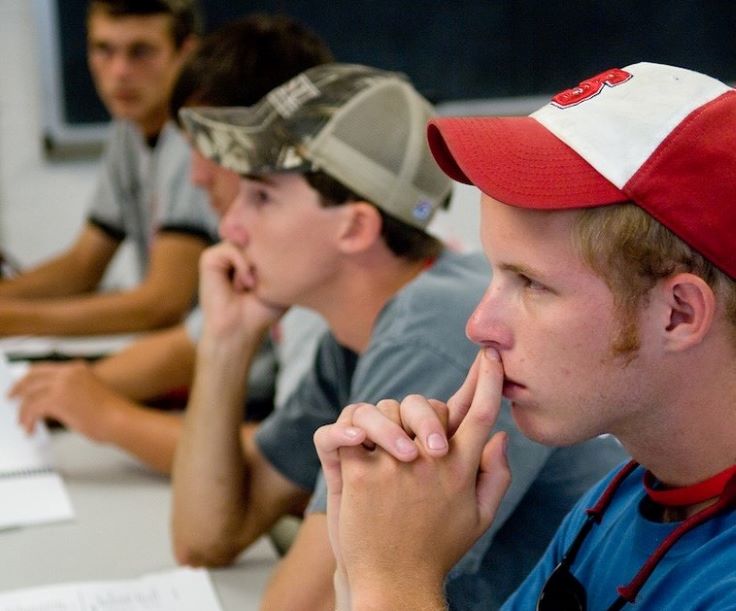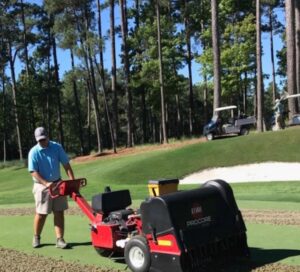The following is next in our series delving into colleges and universities that offer programs devoted to turfgrass management, turfgrass science, and related disciplines. In this edition, we examine the Turfgrass Science program at North Carolina State (NC State) University.
NC State Turfgrass Science students work and learn daily with internationally known faculty. NC State faculty serve the entire turfgrass industry by evaluating new and existing cultivars, production practices, fertility systems and pest management systems including weed, insect and disease management. Turfgrass production and management programs are constantly being created or updated and improved as a result of these research efforts. The faculty utilize this new information by teaching and training future and present turfgrass managers through courses along with lab exercises, seminars and professional meetings. North Carolina is situated in a climate transition zone, allowing students to train on cool- and warm-season grasses.
The NC State Turfgrass Science program offers both four-year and two-year degrees. Students in the four-year program earn a Bachelor of Science degree in a program that features intense rigor and breadth. The four-year degree benefits traditional college students and leads to management, plant breeding and professional supervisory positions. Students in the two-year program earn an associate degree on a compacted timeline with no general studies classes. The two-year program appeals to older or non-traditional students, and is useful for those changing careers or seeking technical or specialist positions.
“In the four-year program, you are going to get the how, the what and the why,” said David Crouse, Ph.D., associate department head and director of undergraduate programs, Crop and Soil Sciences department, NC State. “In the two-year program, you are going to get the how and the what.”
Crouse added that the four-year program helps students develop critical thinking skills. “They need to be able to think, adapt and evolve to issues they haven’t run into,” he said.
Current enrollment in NC State’s four-year program is 22 students, but enrollment is trending upward with each cycle.
Graduates of the NC State Turfgrass program find careers in sports field management, golf course management, residential lawn care, parks and grounds, irrigation, seed and sod, as plant breeders or extension agents, and more.
“Every one of our students sits across the desk from me at the end of their four-year degree and does their exit interview,” he said. “I ask them three questions: What did we do right? What did we do wrong? And do you have a job? When I ask them if they have a job, they always say ‘yes.’ We don’t have a 100-percent placement rate. We have a 100-percent placement rate with a waiting list.
“I asked one student if he had a job. He said, ‘yes.’ I asked him how many applications he sent out, and he said he didn’t send any,” Crouse added. “He said, ‘As soon as they caught wind I was graduating, I had 31 job offers via text message.’ That is pretty much the standard story for our students. If they don’t have a job by the beginning of their junior year, they certainly have one by the beginning of their senior year.”
NC State’s 1,500-acre Lake Wheeler Road Research Lab houses its turfgrass research lab, heralded for advances in turfgrass management, pest control and genetics.
According to Crouse, if there is not a particular research opportunity available for a student, the faculty will work with that student to create a position.
“It’s so much more cost effective to recruit graduate students from your own population,” he said. “As that student gets older and more involved in their program, they are going to be trusted with greater skills so that when they do become a master’s student, all the basic training is already done.”
For high school students interested in NC State, the university offers a program called Spend a Day at State that allows prospective students to visit the college. Those interested in Turfgrass Science sit in on an Introduction to Soils class, and can learn about the Crop and Soil Sciences department, curriculum, scholarships, the application process and the admission process.
For more information about NC State, visit https://www.ncsu.edu/ or https://cals.ncsu.edu/crop-and-soil-sciences/.
SportsField Management magazine will detail other college and university turfgrass programs in coming issues. If you would like your school profiled, please contact John Kmitta at jkmitta@epgacceleration.com or 763-383-4405.



